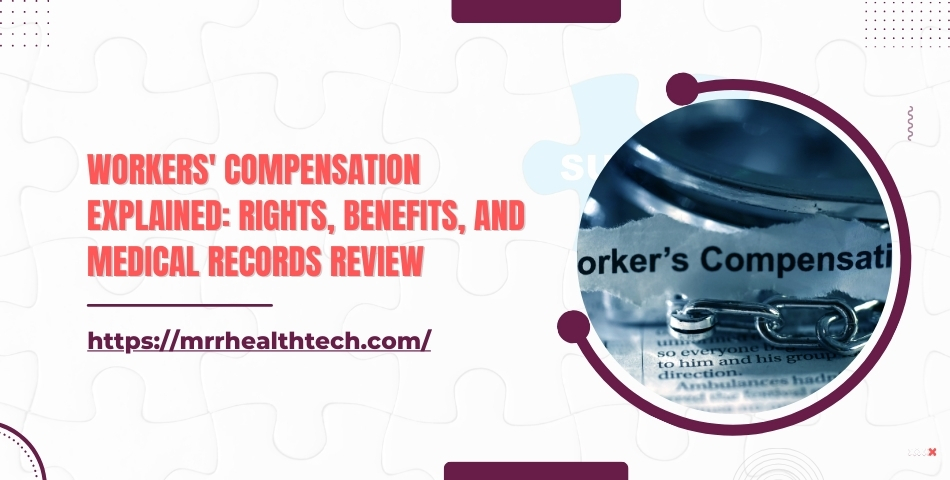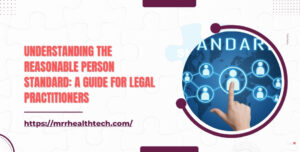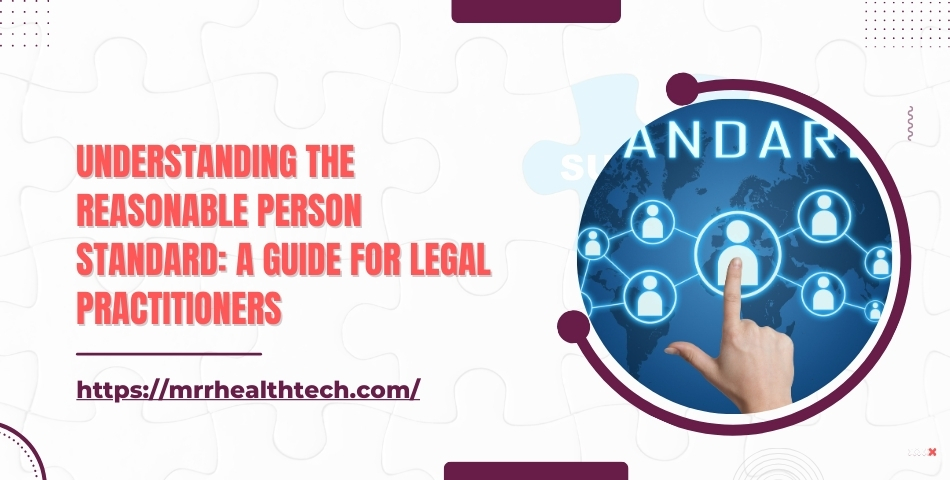
Introduction
Understanding this term refers to the system of laws that provides financial assistance and health benefits to an employee who has been injured while working. It is necessary to know the workers’ compensations laws’ intricacies for both employees and solicitors. This article will cover the most important elements of workers’ compensation, available benefits, and the important contribution of medical records review services to legal claims.
What is Workers’ Compensation?
Definition and Purpose
This is an arrangement of insurance which covers loss of wages in addition to expenses of medical treatment and is applicable to employees who happen to be injured while at work. All injuries in which a worker gets tangled and requires support must have the documentation that these challenges are solved most adequately while having no need to go to claim for enforcement or litigation.
Important Characteristics of Workers’ Compensation
- No-Fault System;: Workers’ compensation has one of the most undemanding systems, usually called no-fault, that suggests that no matter who hurt the employee, he or she will be taken care of.
- Fixed Payments: The amount of compensation is by state laws, which assists in speeding up the claim process.
- Coverage for Dependents: If the worker passes away from a workplace accident, the dependant is awarded certain benefits.
Types of Workers’ Compensation Benefits
1. Medical Benefits
Workers’ compensation covers all necessary medical expenses related to the injury, including:
- Hospital stays
- Surgeries
- Rehabilitation services
- Prescription medications
2. Wage Loss Benefits
Injured workers may receive wage loss benefits, which typically amount to a percentage of their regular salary. This can include:
- Temporary total disability benefits
- Permanent partial disability benefits
- Permanent total disability benefits
Retraining and Job Placement Services
If an employee who sustained an injury cannot go back to his or her previous job, workers’ compensation might cover vocational rehabilitation services that help in job retraining and placement services.
Death Benefits
In the sad situation of a fatality at work, workers’ compensation provides death benefits to the dependents of the deceased worker covering funeral expenses and financial assistance for surviving dependents.
Understanding Workers’ Compensation Laws
Federal vs. State Laws
Workers’ compensation laws vary significantly between states, with each state establishing its own regulations and benefits. However, there are also federal laws that apply to specific groups of workers, such as:
- Federal Employees Compensation Act (FECA): Covers non-military federal employees.
- Longshore and Harbor Workers’ Compensation Act (LHWCA): Provides benefits to maritime workers.
- Black Lung Benefits Act: Offers compensation to coal miners suffering from pneumoconiosis.
State-Specific Regulations
Every state has a distinct workers’ compensation board responsible for managing claims and ensuring benefits are received. For instance, in California, the workers’ compensation system is regulated under the California Labor Code, which stipulates the duties and entitlements of employers and employees.
Common Challenges in Workers’ Compensation Claims
Claim Denials
The most important challenge claimants have to deal with is the denial. Denial may stem from:
• Absence of sufficient medical documentation
• Failure to notify the appropriate party regarding the injury in a timely manner
• Other impairments that existed beforehand
Benefits Payment Delays
In some situations, benefits may not be received timely by the worker, which can create some financial challenges. It is necessary to know how to appeal these failures in order to correct them.
Overly Complex Absenteeism Policies
The workers’ compensation system is often difficult to understand, especially for injured workers. With the aid of an attorney, such laws can be adhered to, and all processes regarding the claim can be conducted timely.
The Role of Medical Records Review in Workers’ Compensation Cases
Importance of Medical Records
Medical records are essential in workers’ compensation claims, as they provide evidence of the injury and its impact on the worker’s life. A thorough medical records review can help attorneys:
- Establish Causation: Demonstrate a direct link between the workplace incident and the injuries sustained.
- Document Treatment History: Provide a comprehensive overview of the medical treatment received.
- Support Claims for Damages: Quantify the impact of the injury on the worker’s life, including lost wages and medical expenses.
How Medical Records Review Services Assist Attorneys
Medical records review services streamline the process of gathering and analyzing medical documentation. These services can:
- Organize Medical Evidence: Compile and summarize medical records for easy reference.
- Identify Key Information: Highlight relevant details that support the case.
- Facilitate Communication: Serve as a liaison between medical providers and legal teams.
Case Study 1: Construction Accident
Overview of the Case: A construction worker fractured his back after falling off scaffolding. He had to be hospitalized on bed rest for weeks.
Challenges: The employer fought the claim, stating that the worker had a prior injury they had not disclosed.
Solutions: A thorough review of medical records demonstrated that there was no history of back problems with the worker, thereby proving that the injury was a consequence of the workplace accident.
Compensation: The worker was compensated in full for their medical expenses and wage loss which enabled them to fully recover and return to work.
Case Study 2: Industrial Injury
Overview of the case: A worker operating at a manufacturing site suffered injuries triggered by a malfunction of machinery.
Challenges: The insurance company refused to pay the medical bill at first on the claim that there was no sufficient medical proof for it.
Solutions: A comprehensive examination of the medical records covered the needed treatments and therefore proved the medical necessity, as well as the industrial nature of the injury.
Compensation: The employee was reimbursed for incurred medical expenses and income, and was also provided with occupational training and counseling services to facilitate return to work.
Conclusion
It is important to understand workers’ compensation from the employees’ and attorneys’ sides within the mapping of injuries from work as understanding the structures enables the unearthing of benefits in case of workplace injuries. Injured employees can rest easy with the guidance of medical experts and legal practitioners equipped with the requisite skills. In this regard medical records review services are most useful as they provide much needed assistance to lawyers and experts trying to build cases. Using these services gives attorneys better options and improves their ability to represent the interests of their clients.













